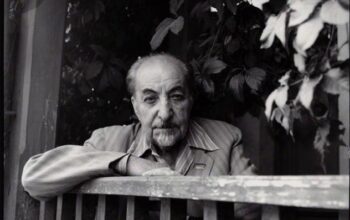By Levon Baronian
Nikol Pashinyan’s regime is executing a systematic campaign to dismantle the Armenian nation from within. This campaign did not emerge from failed policies or misguided reforms. It was premeditated. His rise to power was not the product of a genuine democratic movement, but the result of a foreign-sponsored operation designed to fracture Armenian national unity, weaken strategic alliances, and hollow out the institutions that have long preserved the Armenian people’s resilience.
The latest wave of arrests targeting Armenian Revolutionary Federation (ARF) members, along with the ongoing attacks on the Armenian Apostolic Church, are not isolated or reactionary. They are deliberate moves in a long-term agenda that mirrors the very playbook Turkey and Azerbaijan have employed for decades.
This week, Armenian businessman and philanthropist Samvel Karapetian publicly reaffirmed his commitment to the Armenian Church. “I will not allow anyone to desecrate our sanctities,” he said, voicing a sentiment shared by Armenians across the world. The regime responded with open hostility. Pashinyan ridiculed both the clergy and benefactors as “lewd,” writing on his official Facebook page that they would be “deactivated again. And forever.”
Karapetian was arrested shortly after. When a group of peaceful demonstrators gathered near his residence to protest the move, the Prime Minister reportedly ordered the National Security Service (NSS) to send masked armed agents to disperse them. NSS Director Armen Abazyan refused the unlawful order and was immediately fired.
At the same time, while Pashinyan prepared for talks in Istanbul with Turkish President Recep Tayyip Erdoğan, police in Armenia launched a sweeping crackdown on opposition activists. Most of those arrested were affiliated with the ARF or with the protest movement led by Archbishop Bagrat Galstanyan. The Ministry of Interior gave no concrete explanation, citing only vague “operational information” about public disorder.
The real motive was clear. As ARF Armenia Body Chairman and MP Ishkhan Saghatelyan pointed out, if Armenia’s law enforcement agencies truly cared about constitutional order, they would begin with the Prime Minister himself, whose actions have consistently violated the very foundations of statehood. Archbishop Galstanyan noted that the arrests were clearly intended to silence opposition and “please Erdoğan” in advance of further political concessions.
These are not empty accusations. The facts are undeniable. Pashinyan’s government has spent years attacking the Church, criminalizing patriotic voices, and marginalizing the ARF. At every turn, his administration has sought to dismantle the very institutions that anchor the Armenian identity.
The parallels to Turkish and Azerbaijani policy are striking. Both Ankara and Baku have long viewed the Armenian Apostolic Church and the ARF as threats to their regional ambitions. Both have invested heavily in discrediting these institutions, attempting to erase their influence across the region. Today, Pashinyan is continuing that same project from within our borders.
His press secretary’s attempt to smear Samvel Karapetian as “acting on Moscow’s orders” is not only unfounded, but revealing. In the absence of evidence, the regime simply labels all patriotic resistance as foreign-controlled, while it is Pashinyan himself who continues to advance the interests of foreign powers hostile to Armenian sovereignty.
This is not a question of poor governance. It is a question of national betrayal.
The ARF and the Armenian Church are not political factions. They are national institutions that have defended the Armenian people through genocide, exile, war, and statehood. That is why they are being targeted now—because they represent continuity, resistance, and independence.
The government’s alignment with the interests of Ankara and Baku is no longer speculation. It is reality. Every act of repression, every arrest, every insult directed at Armenia’s national institutions serves the same strategic goal: to strip the country of its identity, memory, and capacity to resist.
This is not a political dispute. It is a national emergency.
Pashinyan is not leading the country. He is dismantling it.




